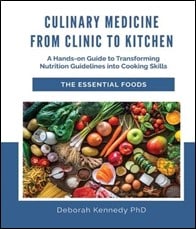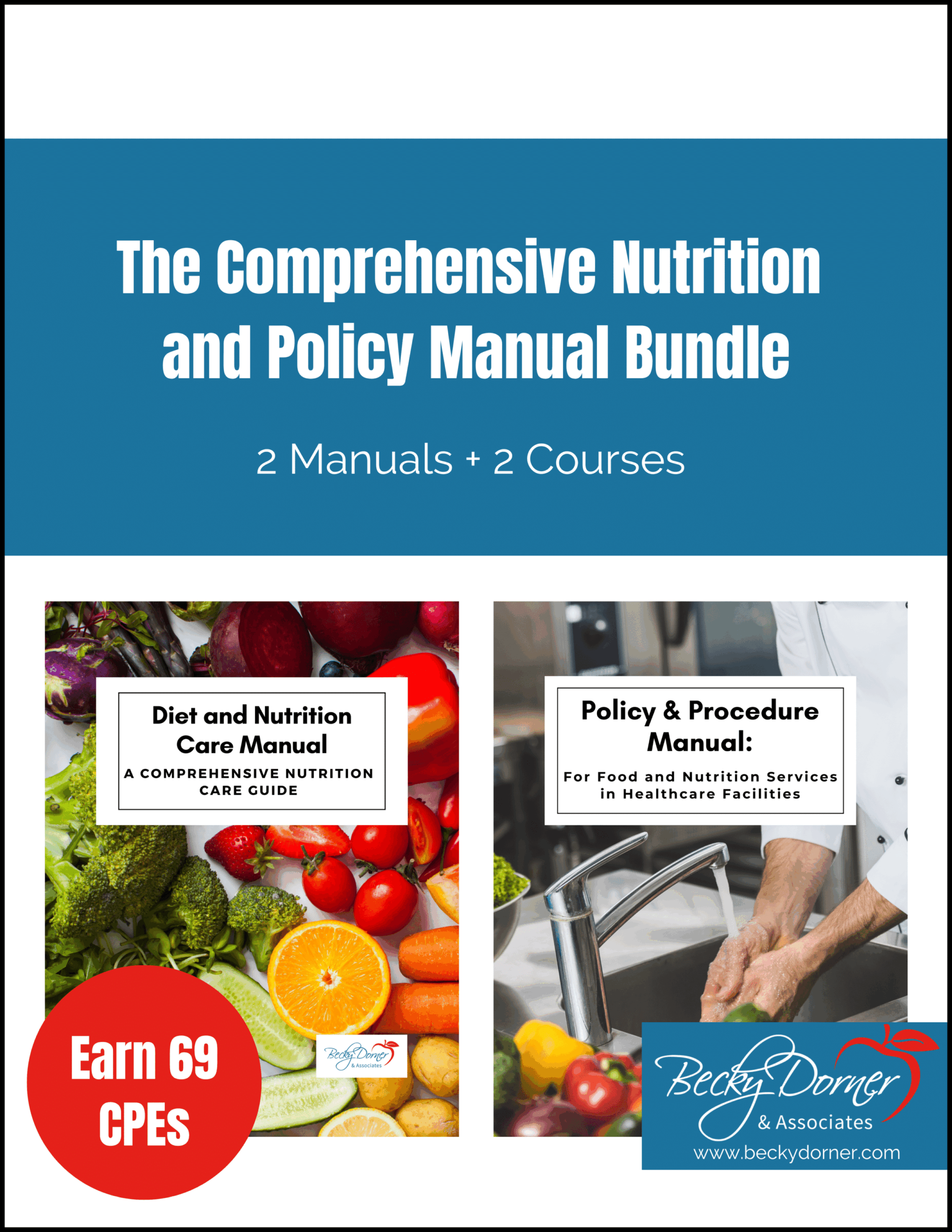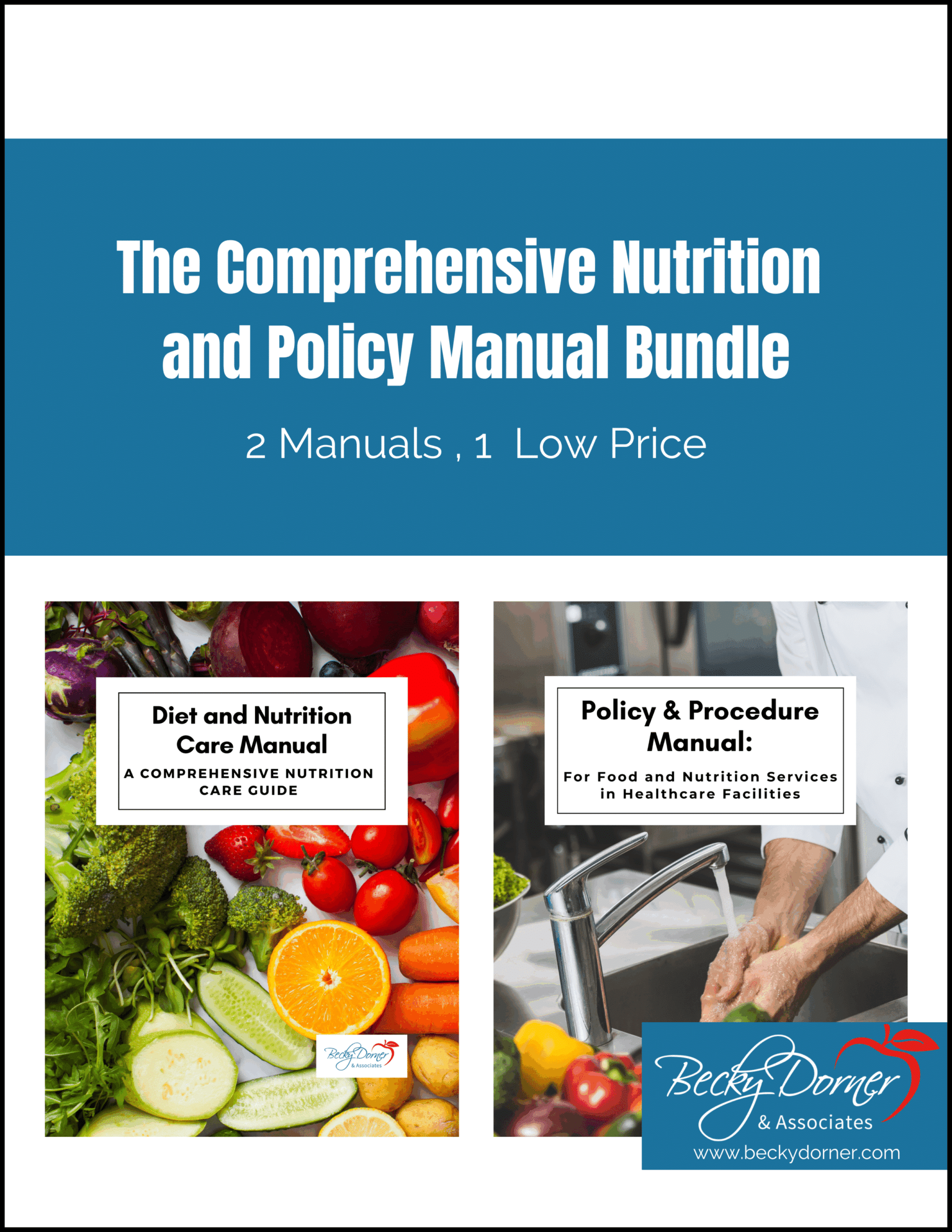
In the world of long-term care (LTC), registered dietitian nutritionists (RDNs) play a critical role in ensuring the health and well-being of residents. Responsibilities encompass a wide range of tasks, from assessing nutritional needs and developing care plans to monitoring the effectiveness of interventions, educating staff, menu planning and food preparation. Amid these daily duties, maintaining regulatory readiness is essential. This blog delves into why being regulatory ready is vital and offers insights on how RDNs in LTC can achieve and maintain this readiness and the links provide valuable resources.
Understanding Regulatory Readiness
Regulatory readiness refers to being prepared to meet the standards and requirements set forth by governmental and other accrediting bodies. In LTC, these regulations are designed to ensure the safety, quality of care, and rights of residents. For RDNs, regulatory readiness means staying informed about current regulations, implementing best practices, and being survey ready (prepared for inspections).
The Significance of Regulatory Readiness in Long Term Care
Ensuring High Quality Nutritional Care
Regulatory bodies, such as the Centers for Medicare & Medicaid Services (CMS) set stringent guidelines to ensure residents receive safe, high-quality care. Guidelines such as the CMS State Operations Manual for Nursing Homes include specific standards for nutrition and food services. By adhering to these regulations, RDNs can ensure that residents’ nutritional needs are met, promoting better health outcomes and quality of life.
Enhancing Resident Safety
Proper nutrition care is a cornerstone of resident safety in LTC. Malnutrition, dehydration, and foodborne illnesses can have severe consequences for older adults and vulnerable populations. Regulatory guidelines such as the USDA Food Code help establish protocols to ensure safe handling practices and prevent foodborne illness. Other guidelines such as the Minimum Data Set 3.0 Resident Assessment Instrument help establish protocols and standards of care for nutrition screening, regular nutritional assessments, and individualized care plans.
Promoting Ethical and Professional Standards
Regulations and codes of ethics such as the Academy of Nutrition and Dietetics Code of Ethics, reflect core healthcare ethics, including beneficence, non-maleficence, autonomy, and justice. Being regulatory- ready means upholding these standards to ensure that residents are treated with dignity and respect. Adhering to regulations helps RDNs provide person-centered care that respects individual preferences and protects residents’ privacy and confidentiality. It also involves adhering to professional codes of conduct, which reinforces the integrity of the dietetics profession.
Facilitating Continuous Improvement
Regulatory readiness is not a one-time effort but an ongoing process. It encourages a culture of continuous improvement where RDNs regularly review and update their practices based on the latest evidence and regulatory changes. This proactive approach leads to better care and outcomes for residents.
Avoiding Legal and Financial Penalties
Non-compliance with regulations can result in legal and financial repercussions for LTC facilities and RDNs. These penalties can include fines, loss of funding, and legal action. For RDNs, maintaining regulatory readiness helps protect their facilities and themselves from these risks and ensures the sustainability of their services.
Strategies for Maintaining Regulatory Readiness
1. Stay Informed and Implement Best Practices
Staying up-to-date with regulatory changes is crucial. Subscribe to our newsletter to receive regular updates and new product announcements.
Develop and implement best practices based on regulatory guidelines. This includes conducting regular nutritional assessments, creating individualized care plans, and documenting interventions and outcomes. Ensure that all staff involved in nutrition and food services are trained in these best practices.
2. Conduct Regular Audits
Performing regular internal audits helps identify areas of non-compliance and areas for improvement. Use our audit tools and checklists from the 2023 Policy & Procedure Manual: For Nutrition and Food Service in Healthcare Facilities to evaluate your facility’s food and nutrition services. Address any issues promptly and thoroughly.
3. Foster a Collaborative Environment
Work closely with other healthcare professionals, administrators, and staff to ensure a collaborative approach to regulatory readiness. Regular meetings and open communication can help identify potential issues and facilitate prompt resolution.
4. Educate and Train Staff
Provide ongoing education and training for all staff involved in resident care. This includes training on regulatory requirements, best practices, and new developments in nutrition and food services. Empowering staff with knowledge and skills is essential for maintaining survey readiness.
Conclusion
For RDNs in LTC, regulatory readiness is not just a bureaucratic requirement—it is a commitment to providing the highest standard of care to residents. By staying informed and implementing best practices, conducting audits, fostering collaboration, and educating staff, we can ensure that our facilities are always prepared to meet regulatory standards. Ultimately, this dedication to regulatory readiness enhances the health, safety, and well-being of those we serve.
For more information, click on the links throughout this article.












